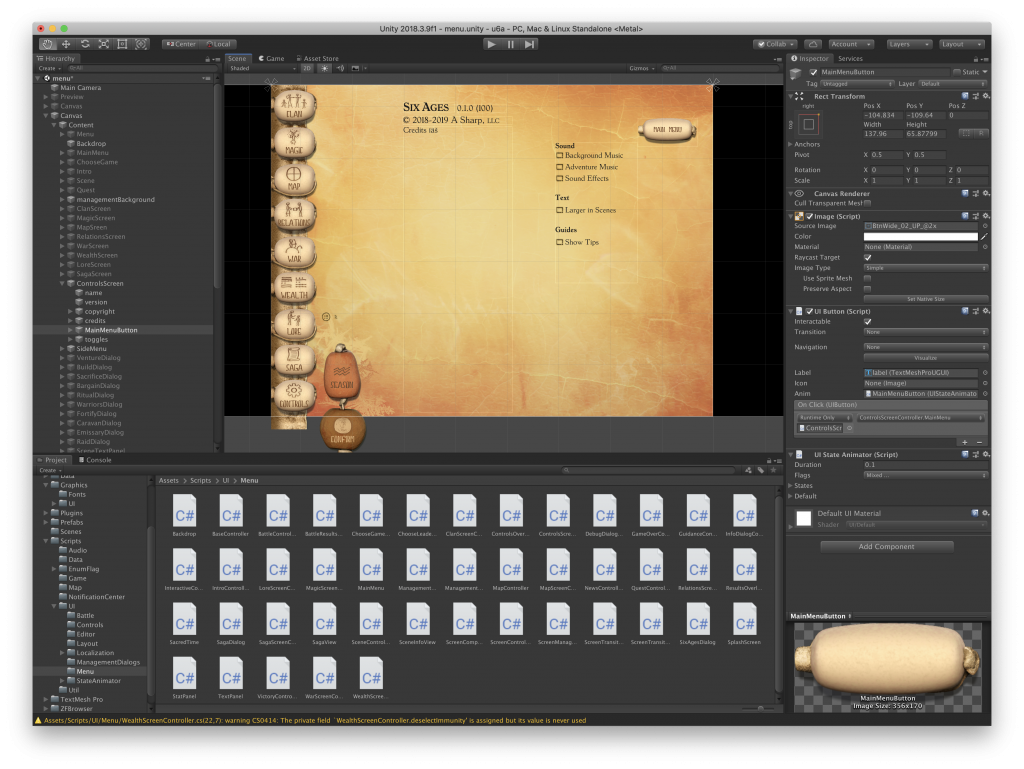I’ve been holding off talking about porting Six Ages because the first attempts had early promise but ran into various extreme problems, including life-threatening medical issues. (Fortunately the programmer didn’t die, unlike at least one porting library.) Even now, there’s a small chance that we’ll run into some issue and have to set the clock back. But I’ve seen the game running on Windows and Mac and feel pretty confident that we’ll be able to release on Steam and GOG for those platforms in 2019, as we’d planned. (Of course we’d like to support other platforms but don’t have any news at the moment.)
It’s been a while since I’d done a game port, and I’d forgotten that progress is essentially inverted from normal development. In a typical game, you start by building out enough of the game to play. This is often called a “vertical slice” (though different studios use that term a little differently). The idea is that you have a simple level where you can make sure that movement, matching, or whatever game mechanic works. Then you add polish and all the other levels.
Six Ages (and King of Dragon Pass) were hard to slice like that (since a year of play consists of almost all game screens), but the basic game was working after a while, and we continued to add story scenes, art, and polish.
When you port, the game is basically complete at the start. So once you have enough infrastructure for a vertical slice, you can essentially play the entire game.
With the Six Ages port, basic interactivity went in early, so you could pretty much play any scene (picking responses, choosing wealth, etc.). And that was it. You could only play that scene, because the management screens hadn’t been coded yet. And then when they were, you couldn’t play effectively, because advice hadn’t been hooked up. And so on.

The game is now at the point where all the UI an experienced player needs is working. This means we can start worrying about things like new screen sizes, keyboard support, cursors, and mouse rollover. Plus of course the rest of the UI, such as Guides, Help, and Tutorial. And music, transition, and bug fixes.
That’s still a lot of work, and there’s still a lot of uncertainty about schedule. For example, as I write this we’re still not certain if sound and music support needs to be completely reworked. (If so, that’s obviously an unexpected delay.) Since our goal is a quality game, we can’t suggest a release date.
We’ll let you know when we have one, but the best way to find out is to wish list the game on Steam.
Good to know how things are going!
Also, I am very glad that no one died in the making of this port.